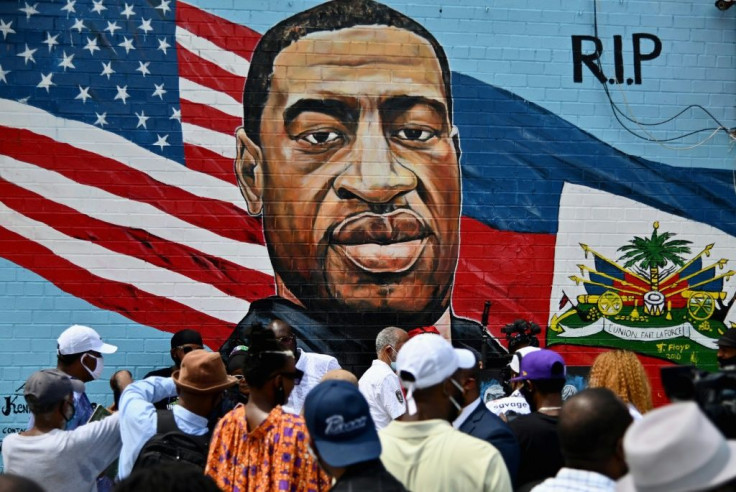Derek Chauvin, Former Minneapolis Officer Charged With George Floyd’s Murder, Released On $1M Bail
KEY POINTS
- Derek Chauvin was being held at Minnesota Correctional Facility-Oak Park Heights
- A spokeswoman for the Minnesota Department of Corrections confirmed his release
- An attorney representing Floyd’s family called his release a painful reminder for the family
Derek Chauvin, a former Minneapolis police officer who fatally pressed his knee against the neck of George Floyd and sparked months of protests across the United States, was released from jail on a $1 million bond on Wednesday, court documents showed.
Chauvin was fired from his position and charged with third-degree murder and manslaughter following the May 25 death of Floyd. Chauvin was seen in a video kneeling on Floyd’s neck for several minutes as the victim pleaded he couldn’t breathe.
Chauvin was being held at Minnesota Correctional Facility-Oak Park Heights. "I can confirm he is no longer in our custody," Sarah Fitzgerald, spokeswoman for the Minnesota Department of Corrections, told CNN.
Chauvin reportedly posted a non-cash bond guaranteed by Allegheny Casualty, an insurance company. His bail bond comes with several conditions including a bar on making direct contact with Floyd’s family, according to CBS Minnesota.
Minnesota laws allow a bail bond agency to charge a maximum of 10% of the bail amount, in this case, up to $100,000, but it wasn’t clear who paid the bond company. The Minnesota Police and Peace Officers Association, which maintains a legal defense fund, didn’t pay the money, CNN reported, citing a spokesperson from the association.
Governor Tim Walz mobilized at least 100 personnel from the Minnesota National Guard "out of an abundance of caution" following Chauvin’s release, according to USA Today.
Out of an abundance of caution, Soldiers from the @MNNationalGuard are being activated by @GovTimWalz under Executive Order. The Soldiers will report for duty and stage in preparation for potential response in support of local law enforcement pending specific mission requests. pic.twitter.com/As09Fvf3M6
— Minnesota National Guard (@MNNationalGuard) October 7, 2020
Ben Crump, a lawyer representing Floyd’s family, called Chauvin’s release a painful reminder for Floyd’s family. “Although George Floyd was denied justice in life, we will not rest until he is afforded full justice in death,” Crump said in a tweet.
Derek Chauvin posted a $1M bail today – buying his freedom after robbing George Floyd of his life over $20. His release on bond is a painful reminder to George’s family that we are still far from achieving justice. pic.twitter.com/LONbzSgimj
— Ben Crump (@AttorneyCrump) October 7, 2020
Chauvin is reportedly due in court on March 8, 2021.

© Copyright IBTimes 2025. All rights reserved.






















